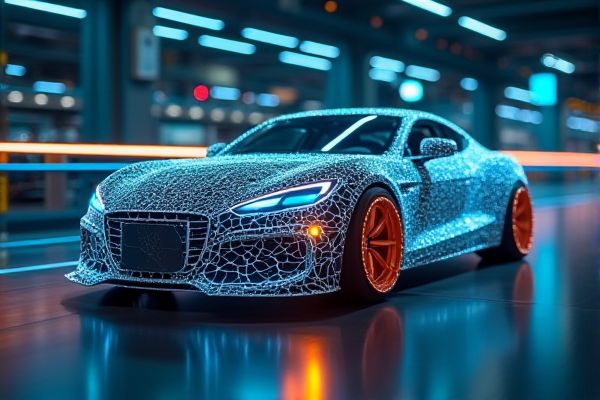
AI integration in car manufacturing enhances efficiency through automation of repetitive tasks, ensuring precision in assembling components. Machine learning algorithms analyze vast datasets to optimize production processes, reducing waste and minimizing errors. Predictive maintenance powered by AI continuously monitors equipment, preventing potential breakdowns and extending machinery lifespan. AI-driven robotics support flexible manufacturing, enabling rapid adjustments in production lines to accommodate varying vehicle models.
AI usage in car manufacturing
Predictive Maintenance
AI in car manufacturing can enhance predictive maintenance by analyzing data from vehicle sensors to foresee potential failures. Companies like Ford are already utilizing AI algorithms to optimize maintenance schedules, thereby reducing downtime. Implementing AI-driven solutions may lead to significant cost savings and increased vehicle reliability. The possibility of using AI to improve operational efficiency presents a strong advantage in an increasingly competitive automotive market.
Quality Control
AI usage in car manufacturing has the potential to enhance quality control processes significantly. By analyzing data from production lines in real time, AI algorithms can identify defects more accurately than traditional methods. For example, Tesla employs AI-driven vision systems to monitor the assembly process for quality assurance. This integration may lead to reduced waste and improved overall product reliability.
Supply Chain Optimization
AI usage in car manufacturing enhances supply chain optimization through predictive analytics and inventory management. By analyzing market trends, companies can better forecast demand, reducing excess stock and production delays. For instance, Toyota has implemented AI-driven systems to streamline its supply chain processes, resulting in more efficient operations. The integration of AI may lower costs and increase responsiveness to consumer needs.
Autonomous Vehicles
AI in car manufacturing enhances efficiency and precision in production processes. By utilizing machine learning algorithms, companies like Tesla optimize supply chain management, reducing delays and costs. Predictive maintenance powered by AI can minimize breakdowns, improving vehicle reliability. The potential for these advantages can lead to increased competitiveness in the autonomous vehicle market.
Production Scheduling
AI can optimize production scheduling in car manufacturing by predicting demand more accurately. For example, companies like Toyota are integrating AI algorithms to streamline their assembly line processes. This can lead to reduced downtime and improved resource allocation. The possibility of enhanced efficiency allows manufacturers to respond rapidly to market changes.
Inventory Management
AI can optimize inventory management in car manufacturing by predicting demand and reducing excess stock. This technology can analyze sales trends and adjust supply chains accordingly, enhancing efficiency. For example, a large automotive company may implement AI-driven systems to streamline parts ordering. The possibility of reducing costs and improving delivery times could provide a significant competitive advantage.
Human-Robot Collaboration
AI applications in car manufacturing can enhance efficiency through automation and precision. Human-robot collaboration is increasingly integrating AI to optimize assembly line processes, reducing production time and costs. For example, companies like BMW are leveraging AI-driven robots to work alongside human workers, allowing for streamlined operations. This synergy presents the potential for improved safety and quality control in vehicle production.
Design and Prototyping
AI can streamline the design process in car manufacturing by analyzing vast amounts of data to optimize vehicle specifications. For instance, companies like Tesla utilize machine learning algorithms to enhance prototyping efficiency, reducing the time from concept to production. Predictive analytics can also identify potential design flaws early, minimizing costly revisions. This integration may lead to a competitive advantage by improving product quality and accelerating time to market.
Energy Efficiency
AI implementation in car manufacturing can enhance energy efficiency by optimizing production processes and reducing waste. For instance, the use of AI-driven predictive maintenance tools ensures machinery operates at peak efficiency, minimizing energy consumption. Manufacturers like Tesla leverage AI algorithms to improve their vehicle designs, aiming for better mileage and lower emissions. This integration of AI in manufacturing processes increases the potential for cost savings and environmental benefits.
Worker Safety Enhancement
AI technology in car manufacturing can significantly enhance worker safety by predicting potential hazards on the assembly line. For example, systems can analyze data from robots and machines to identify risks that may arise during operations. This proactive approach allows the implementation of safety measures before accidents occur, making the workplace safer for employees. By adopting AI, manufacturers may improve overall productivity while minimizing the likelihood of injuries.
 techknowy.com
techknowy.com